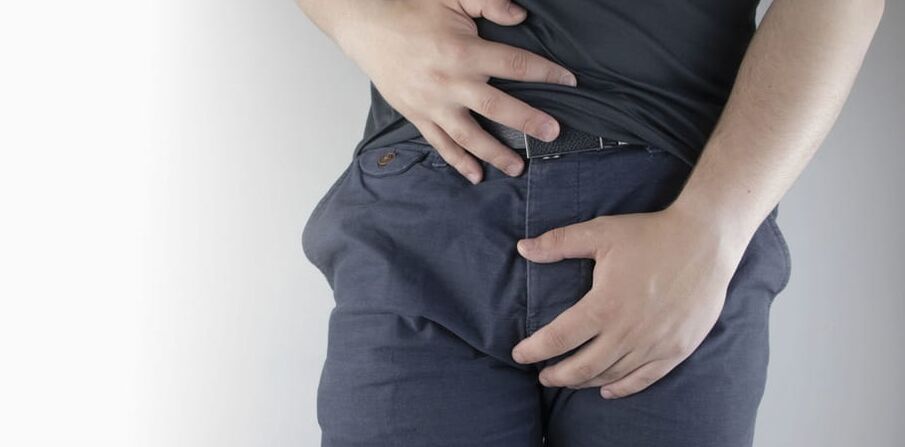For most people, varicose veins are just a pathology of the lower extremities. However, problems with blood vessels can develop anywhere in the body, and intimate places in men and women are no exception. Varicose veins in the lips and other organs of the vulva, penis and testicles (varicocele) are especially problematic.

causes
The main factor in the development of the pathology is a genetically determined weakness of the vascular wall, in which the veins lose their tone and elasticity. Other provoking causes of varicose veins in the groin organs are:
- malnutrition with frequent constipation;
- chronic diseases of the genitourinary system;
- intense physical activity with tension in the pelvic muscles and anterior abdominal wall;
- slow blood circulation in the groin due to a sedentary lifestyle;
- compression of blood vessels and blockage of venous blood outflow due to blood clots, scars, adhesions, tumors of various etiologies;
- changes in hormone levels during physical maturation, pregnancy, menopause, hormonal drug use;
- increased load on perineal organs in women before and after pregnancy, during childbirth;
- blood stagnation and compression of the small pelvis and perineum vessels due to the growth of the uterus;
- trauma and surgery of the external genital organs in men and women;
- frequent urinary retention;
- systematic delay in ejaculation;
- frequent hot baths, baths, saunas.
Symptoms
In women, varicose veins affect the lips and other parts of the vulva, in men - the penis, the scrotum. Depending on the location, the pathology has similar and different symptoms.
The most common include:
- spider veins in the early stages;
- dilated inguinal veins projecting into the perineum, firm to the touch and with altered relief, forming uterine plexus and 3 to 4 degree nodules of varicose veins;
- bluish skin tone;
- itching, burning, pain in the development of congestion;
- feeling of fullness;
- pain during intimate contact, going to the bathroom, physical exertion.
With varicose veins on the lips and vulva, there are also:
- Pain radiating to the lumbar region or hip is chronic, interferes with the woman's normal life and leads to deterioration of the psycho-emotional state: depression, increased irritability, unsatisfactory sleep, neurosis.
- Large, hard vascular nodules that make it difficult to sit and move.
Varicose veins of the spermatic cord (varicocele) in men are accompanied by:
- asymmetry, prolapse, swelling of the scrotum on the side of the injured testicle;
- discomfort, burning and pain when walking and with less physical effort;
- deterioration of intimate quality of life to impotence and infertility.
The defeat of the penis manifests itself:
- severe swelling of the veins, even in a calm state;
- painful erection;
- a change in skin color from deep pink to deep red with a bluish tint;
- soft tissue swelling;
- detect bleeding and visible hardening under the skin.
what is dangerous
Damage to the groin organs can cause serious complications and negative consequences: thickening of the blood in the vessels causes thrombosis, phlebitis, sudden bleeding from intercourse, or tension during bowel movements.
labia and vulva
If left untreated, the disease progresses, which causes complications:
- Varicothrombophlebitis is one of the forms of thrombophlebitis, which is expressed in the defeat of the superficial vessels of the lower extremities. It causes complications to the main and deep veins of the pulmonary artery.
- Pelvic thrombosis is the formation of blood clots in the superficial and deep veins that, if torn out, can be fatal.
As medical practice shows, bleeding rarely develops with this pathology, and situations in which the burst of an inflamed vein is possible are rare, especially during childbirth, therefore, varicose veins must be treated immediately after diagnosis.
Penis
Varicose veins in the penis and spermatic cord lead to decreased sperm quality and compromised erectile function. The patient's psychological health also suffers: the altered appearance of masculinity affects the emotional state, leading to the development of depression and neurosis, even impotence.
Treatment
The basis for treating varicose veins is medication and the elimination of factors that cause the development of the disease - adequate food, sports, drinking, correcting body weight.
Medicines are prescribed systemically in the form of pills, capsules or locally in the form of ointments, creams. The following groups are prescribed: venotonics (phleboprotectants) to strengthen the vascular wall, increase the tone and elasticity of the veins, relieve edema and lymph congestion, antiplatelet agents for blood clot reabsorption, NSAIDs to reduce inflammation and pain , antihistamines against itching, burning and others.
Pregnant women are advised to wear compression underwear in the form of a sock or sock (with a pocket in the belly) for men - a special style of underwear to support the testicles and penis in the correct position.
Of the minimally invasive methods, sclerotherapy is recommended - introduction of special substances into the vessels that adhere to the injured areas and the blood circulates through healthy veins, in addition to laser or radiofrequency ablation, which act according to a similar principle - they seal the affected vessel.
Surgical treatment is only used after the birth of a child, if the veins have not returned to health, that is, the cause of varicose veins is not pregnancy.
In the early stages of the pathology, treatment with alternative methods of therapy is possible: ointments, decoctions of medicinal plants, compresses and baths based on them. Before treating the condition with alternative methods of therapy, you should definitely consult your doctor.












































